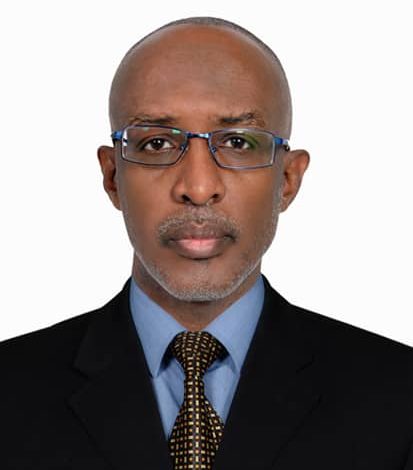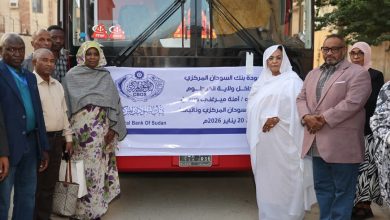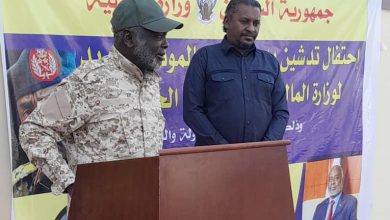Minerals: The War Disrupted Gold Production of 400 Kilograms Per Month

Interviewed by: Nahid Oshi
The former director of the Sudanese Mineral Resources Company, Mujahid Al-Bilal, has revealed that the war that broke out on April 15 of last year caused a disruption in the production of between 300-400 kilograms of gold per month, during the first months of the war, from the concessionary companies sector.
He said in an interview with (Sudan Events) that the war caused all foreign companies to stop working, in addition to evacuating their employees since the beginning of the war, but they resumed production later after several months, pointing to the slowdown in production in most waste treatment companies, due to the scarcity of production inputs. The traditional mining activities that feed the sector with ore declined, adding that the war led to the cessation of exploration by companies, which he considered to have affected the state’s revenues from the mining sector, in addition to the decrease in the volume of gold exported through official channels in the first period of the war and the escalation of smuggling activities.
He revealed a massive spread of random activities represented in treatment with chemicals, far from oversight authorities and official procedures. He attributed this to the weakness of government oversight in the first period of the war. However, he pointed out that the speed of movement of the Ministry of Minerals and its arms and their spread in the field in the safe states enabled the speed of returning activity to production companies and controlling random practices.
He warned against the danger of attacking the Ministry’s presidency, the headquarters of the Geological Research Authority, and the headquarters of the Sudanese Mineral Resources Company, causing the country to lose invaluable technical and administrative information, and he expected the mining sector to face difficulties in retrieving that information…more information in his statements below.
In your opinion, what will be the situation of the Ministry of Minerals in the upcoming formation of ministries?
The news carried that a reduction of ministries was in the hands of the President of the Sovereignty Council, adopting recommendations to merge the Ministry of Minerals with the Ministry of Energy and Oil, and we have an opinion on this through what the Ministry went through in the past years, where the mineral industry fluctuated with its technical, supervisory, commercial and administrative components and irrational fluctuations in a short period of Sudan’s life indicate to the observer that there is a constant rush in its matter, according to the following:
* Before 2010, minerals were integrated with energy under the name of the Ministry of Energy and Mining.
* In the year 2010, the first separate Ministry of Minerals was established in the modern history of Sudan after independence. The prospects of gold at that time was very large, and the Ministry was headed by Dr. Abdul-Baqi Al-Jilani.
* In 2018, for reasons of austerity, the Ministry of Minerals was merged with Energy and Electricity in the government of Moataz Moussa, and it was headed by Geologist Counselor Azhari Abdul Qader.
* In February 2019, with the correction decisions, the minerals were returned to a separate ministry in the government of Mohammad Taher Aila, and the ministry was held by Dr. Mohammad Abu Fatima.
* In the first government after the disappearance of Ingaz, and for the sake of agile government, minerals were merged again with oil and electricity in the government of Dr. Abdullah Hamdouk, and it was headed by geologist Counselor Adel Ali Ibrahim.
* In 2020, amendments took place, as a result of which minerals returned to a separate ministry headed by Minister Muhammad Bashir Abdullah Abu Nammu.
This narration shows that there were six changes in the Ministry between individuals and mergers in a short period. Five of them took place within six years in different eras, with a decision for each year. The matter, in my estimation, is due to two things, the first of which is that the committees that work on the matter of sorting and merging The picture is not clear about the composition of the state’s bodies and what each ministry can contribute.
The second is the failure to accompany the stakeholders and the administrations of the specialized institutions for each sector in these deliberations, so the standards are always inadequate and the results are delayed and not advanced. The evidence is that with every merger, the specialized technical authorities from geology and minerals make a great effort in explaining the reality of the situation, so the ministry is separated with the first ministerial reshuffle.
Why a separate Ministry of Minerals?
First, in a short life, minerals were able, with only one mineral, to top the list of Sudan’s exports and became the source of its largest free currency, with an effort not equivalent to a tenth of what must be done in the future towards the mining industry in the country… let alone the dozens of other minerals on the list. ..And what about the number of companies that should be established on the same basis as the Sudanese Mineral Resources Company, the Ariab Company, and the Sudan Minerals Training Company were founded on?
Second,
Our country is in a state of war, or let us say that it is emerging from a state of war that is exhausting and devastating to the infrastructure, let alone major sectors that before the war basically represented great challenges, such as oil and electricity, and minerals are combined with them. These are complex files that need to be constantly presented in senior meetings, and their issues are present. Whether at the level of the Council of Ministers or the Sovereign Council, what will a minister say who only has a few minutes at the sovereign level to express three files, each of which needs a full-time Council of Ministers to support them with sovereign decisions?
Third ..
The minister’s specialization will often determine his priorities…either he is interested in oil, electricity, or minerals…and therefore his presence and current concerns will mostly be in a field that he understands directly and his information is present, and he will need a long time to understand the issues of other sectors, unlike that in the case of a single ministry even If the minister is not a specialist, he devotes his time and effort to his solution and travels towards his responsibility, so he sleeps and wakes up with it.
Fourth,
It is clear that the state agencies, in their various reviews, discover the error of merging minerals with other sectors and quickly correct the error by returning minerals to an independent ministry. Although this matter is positive, it greatly delayed the development and growth of the Ministry of Minerals, and weakened the presence of its issues at the level. The sovereign body and the lack of information at the level of the highest state authorities.
My opinion and opinion is that a ministry directly pumps no less than $350 million annually into the state budget, a ministry that supervises no less than 50% of the value of the country’s exports, and a ministry that manages operating budgets for companies and miners within the state’s economic cycle amounting to no less than $2 billion. Annually, a ministry takes care of more than six million Sudanese workers, traders, miners and their dependents, and a ministry that represents a miniature economy of the country with all the capital and major businessmen and companies within it.
My opinion and opinion is that a ministry of this size and this challenge, in which everyone hopes to lead the way, should be a separate ministry under the name of the Ministry of Minerals.



